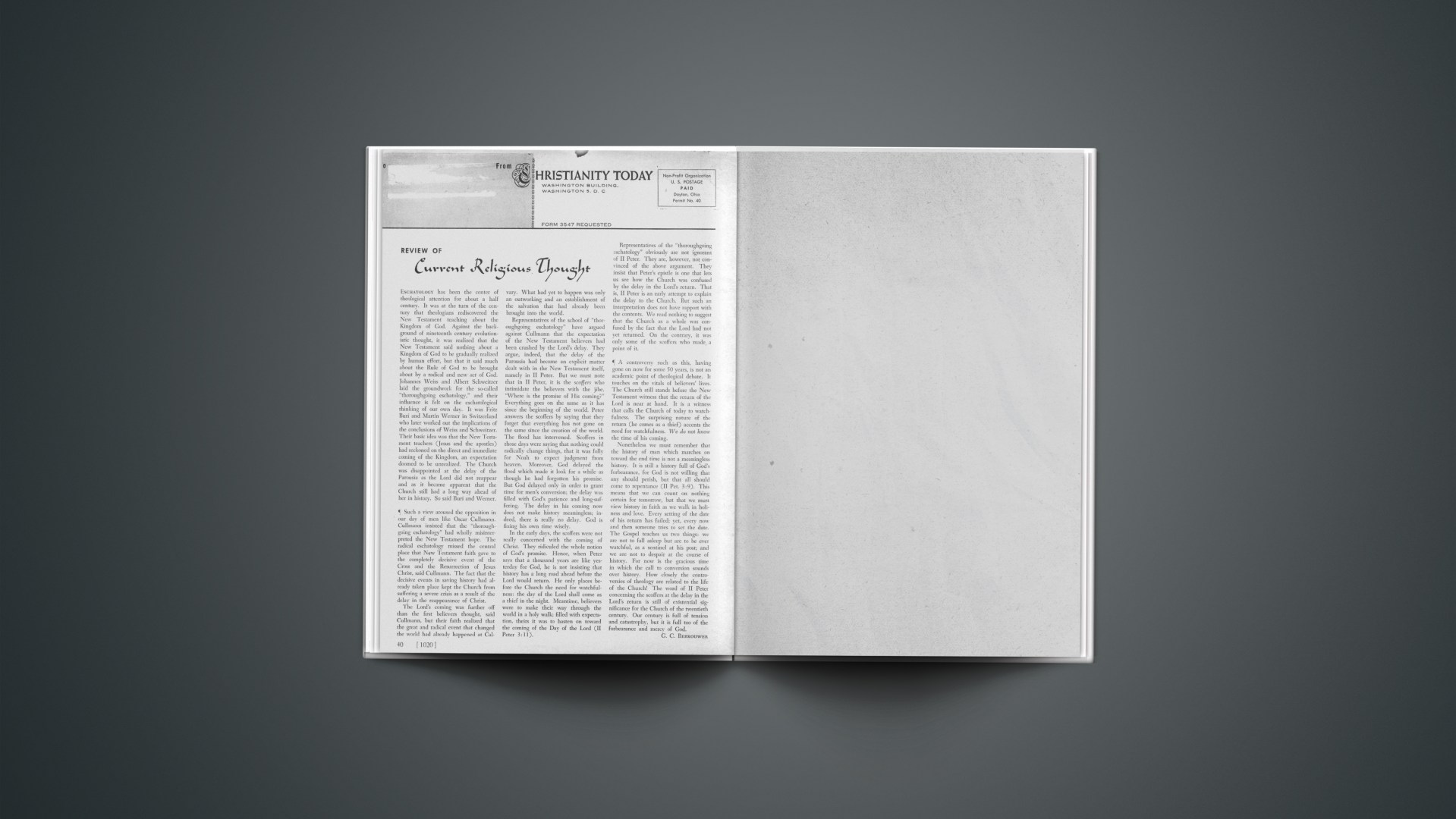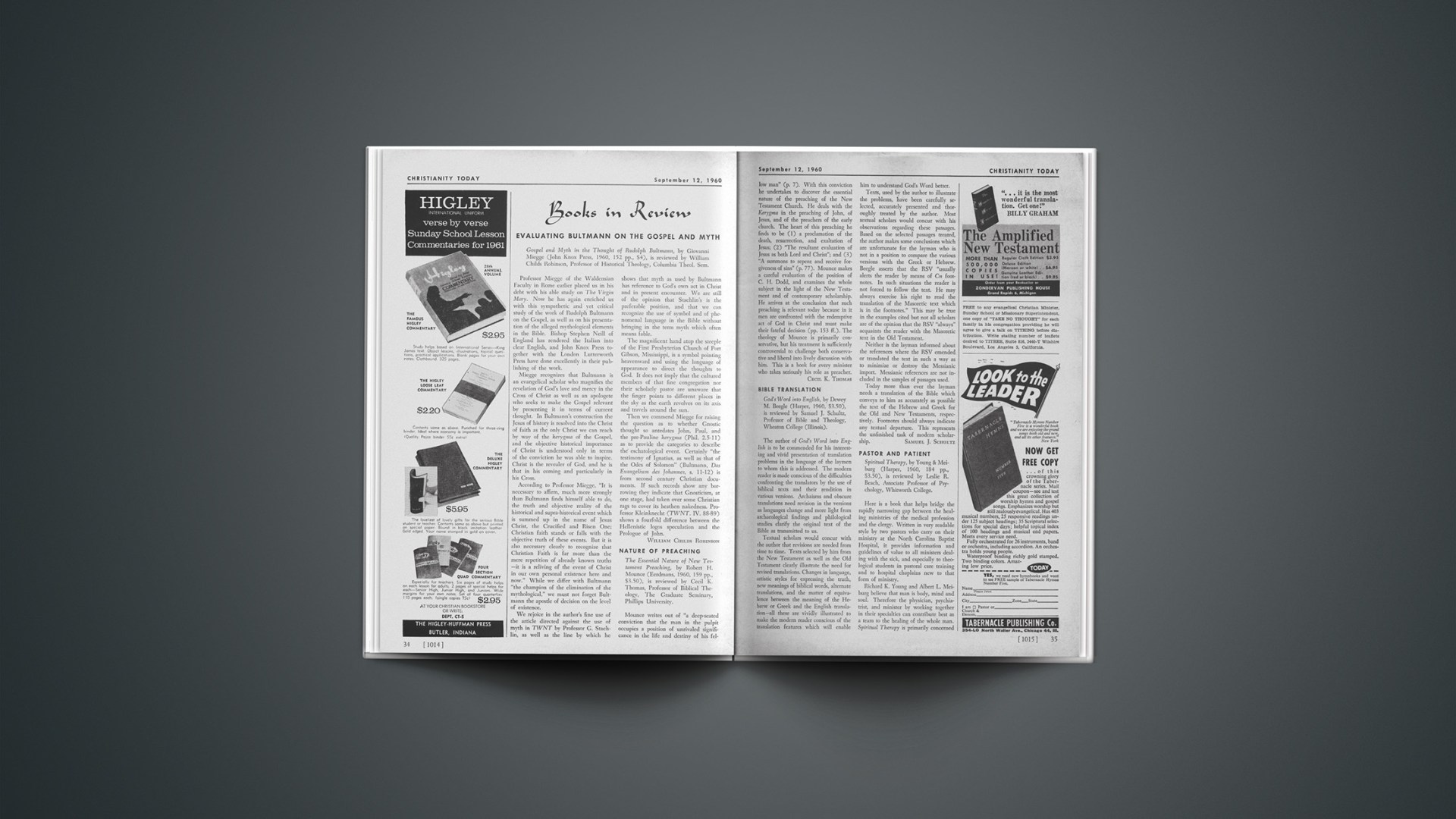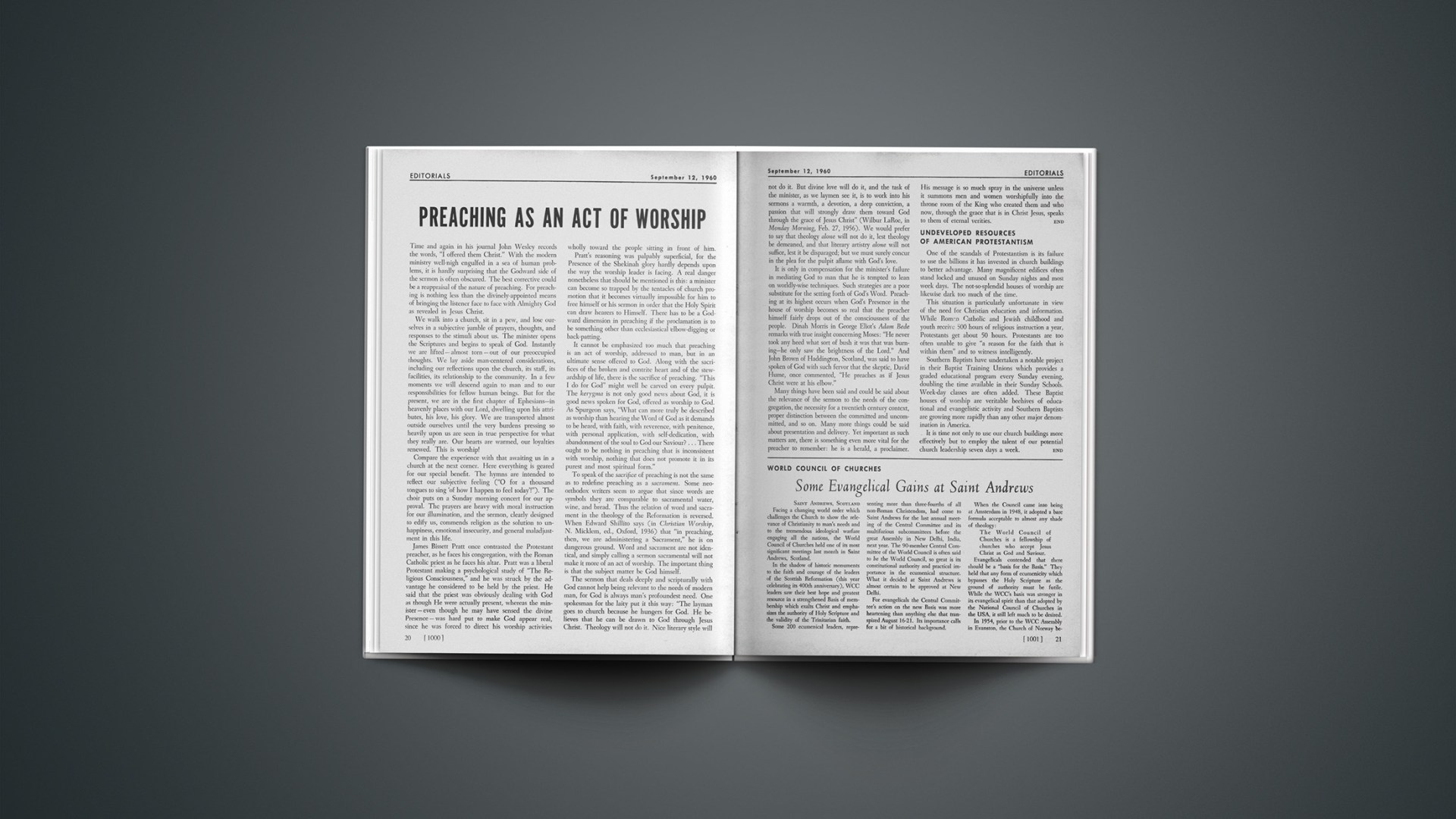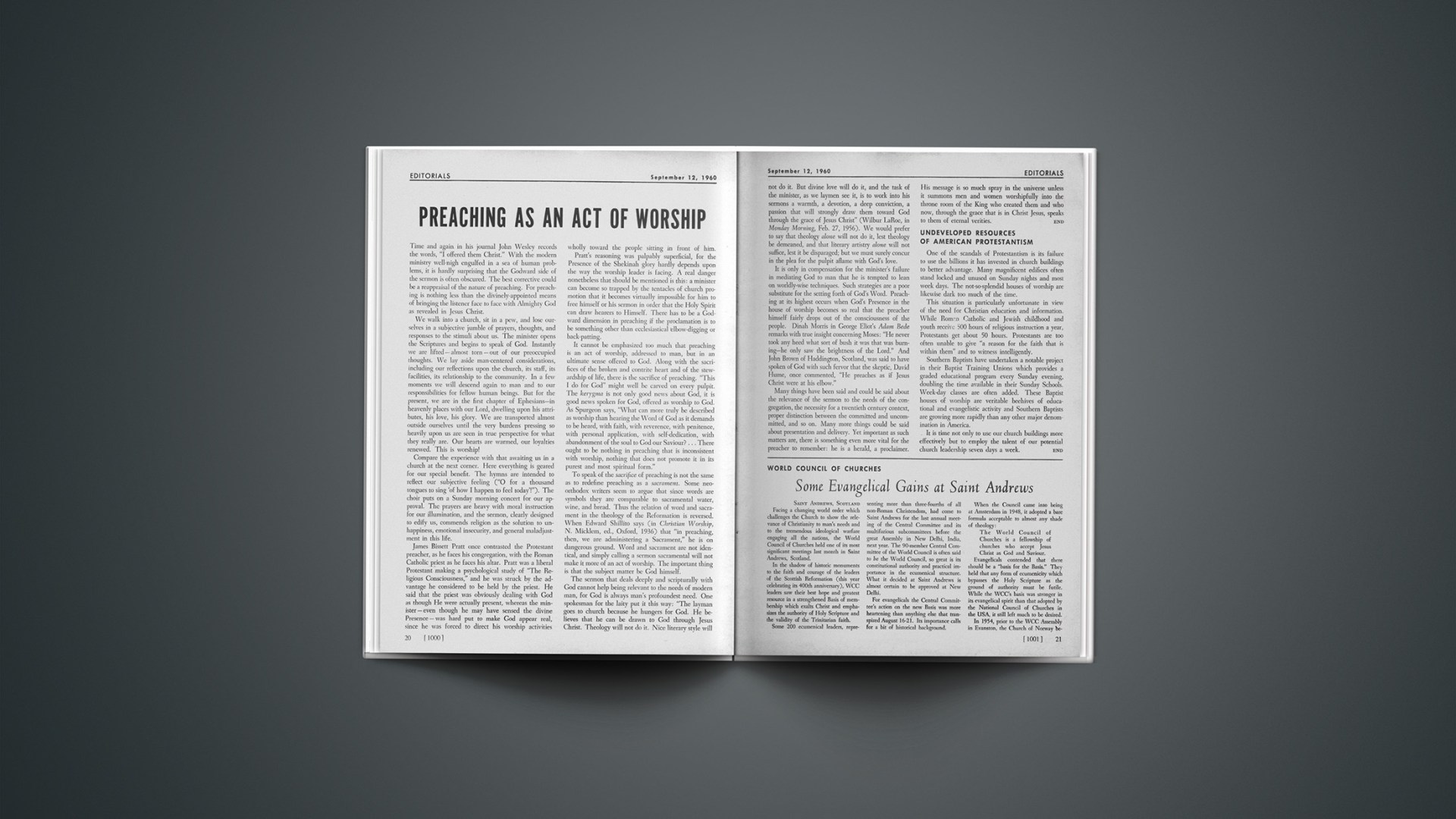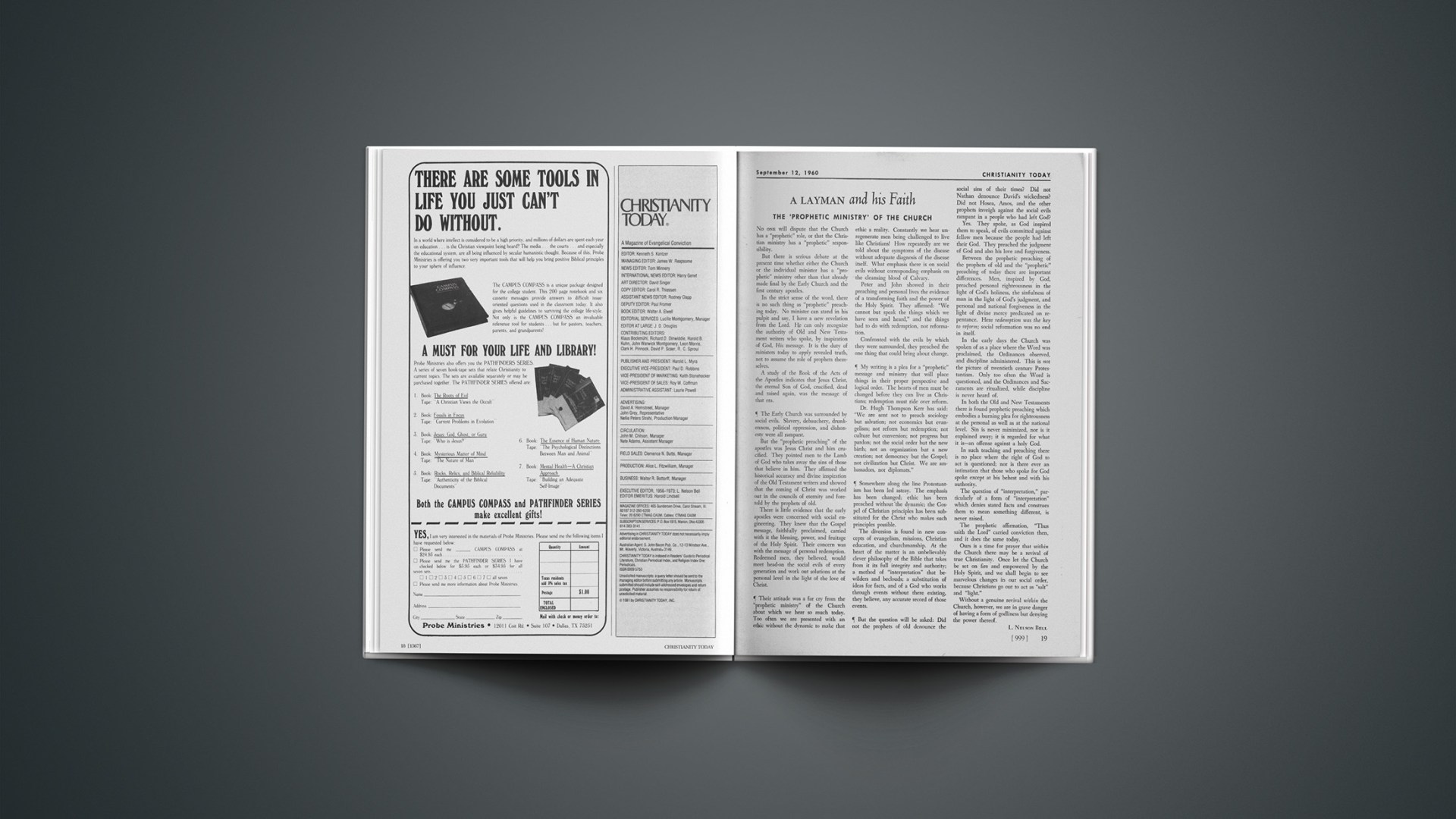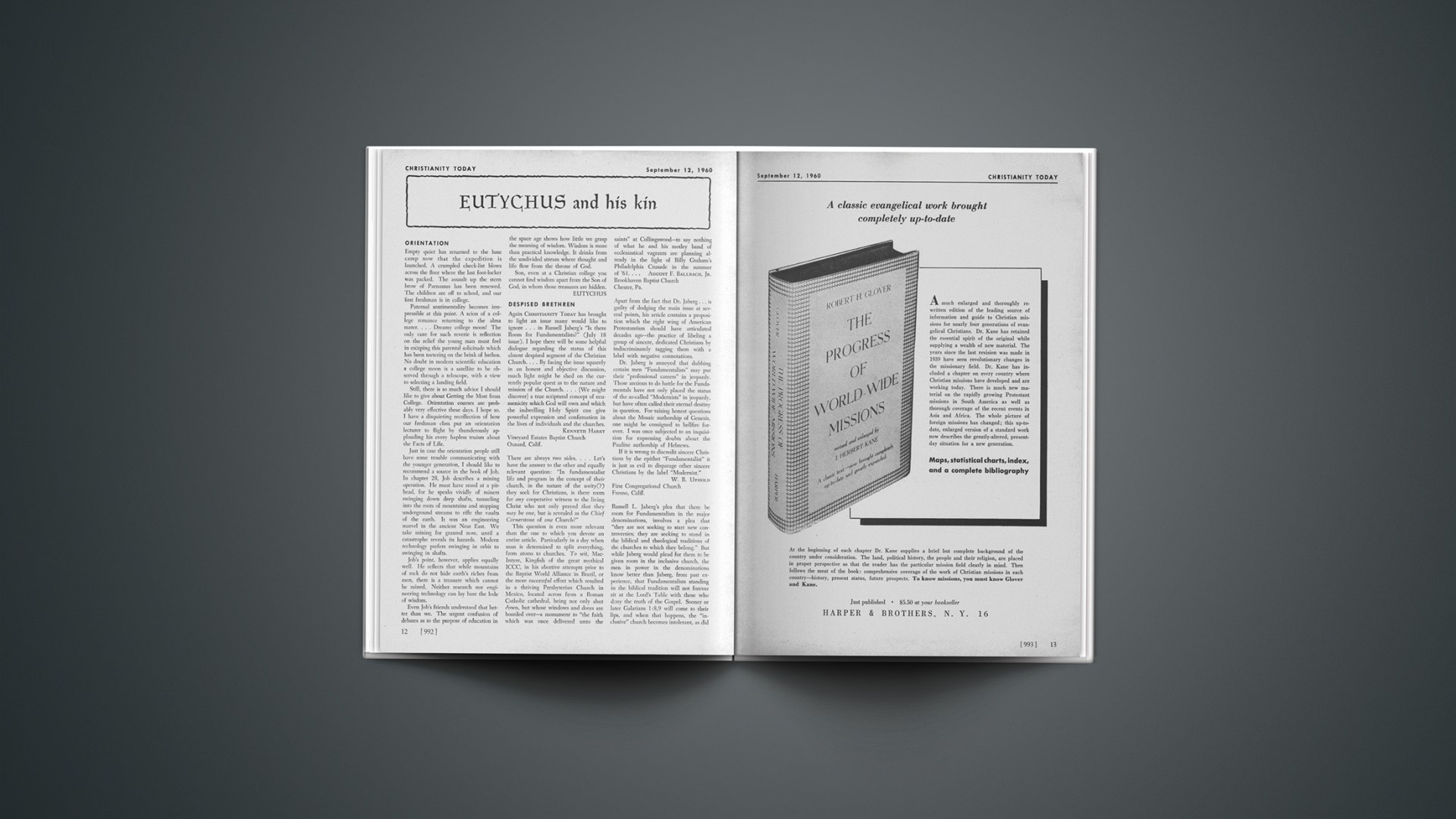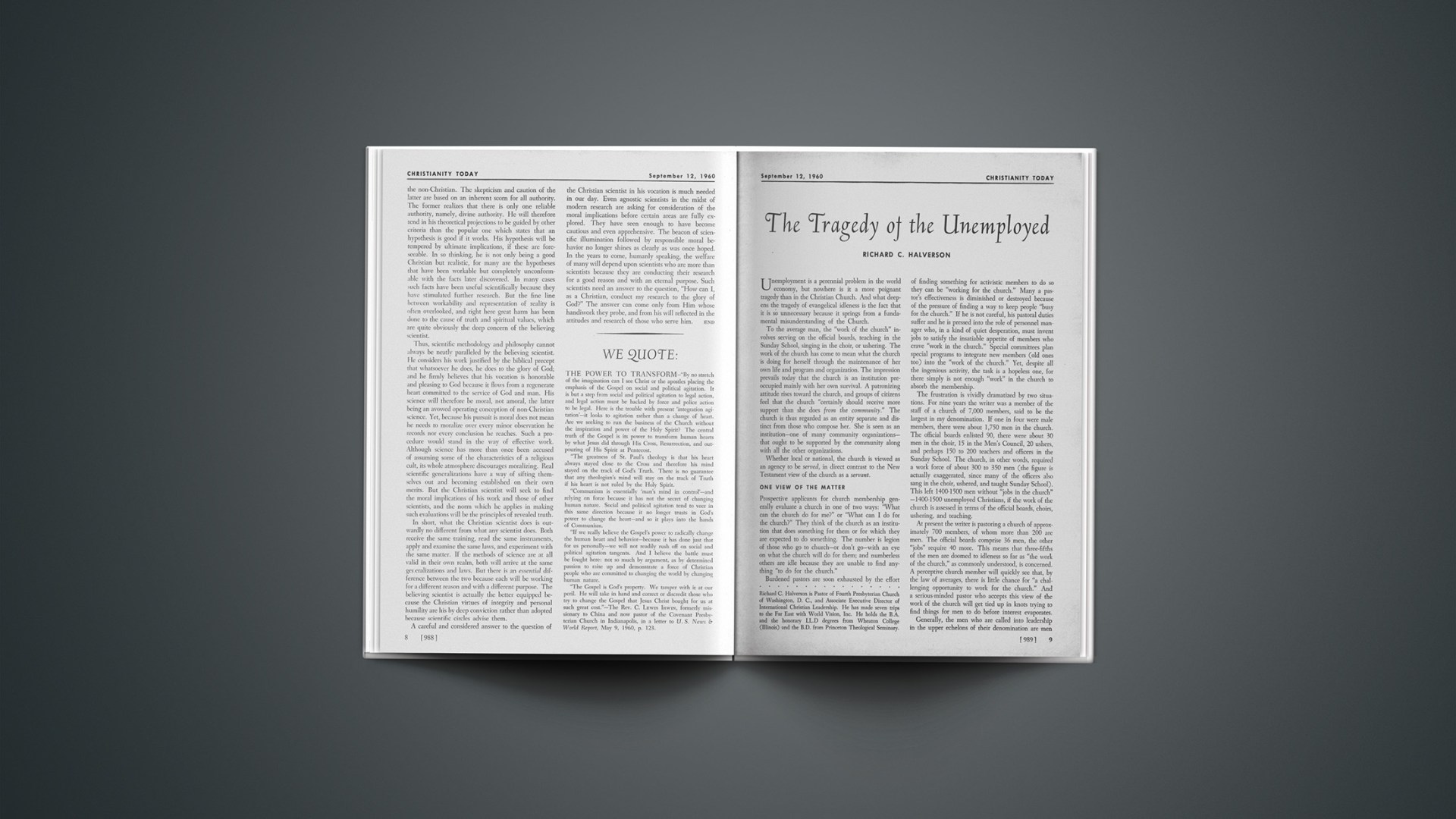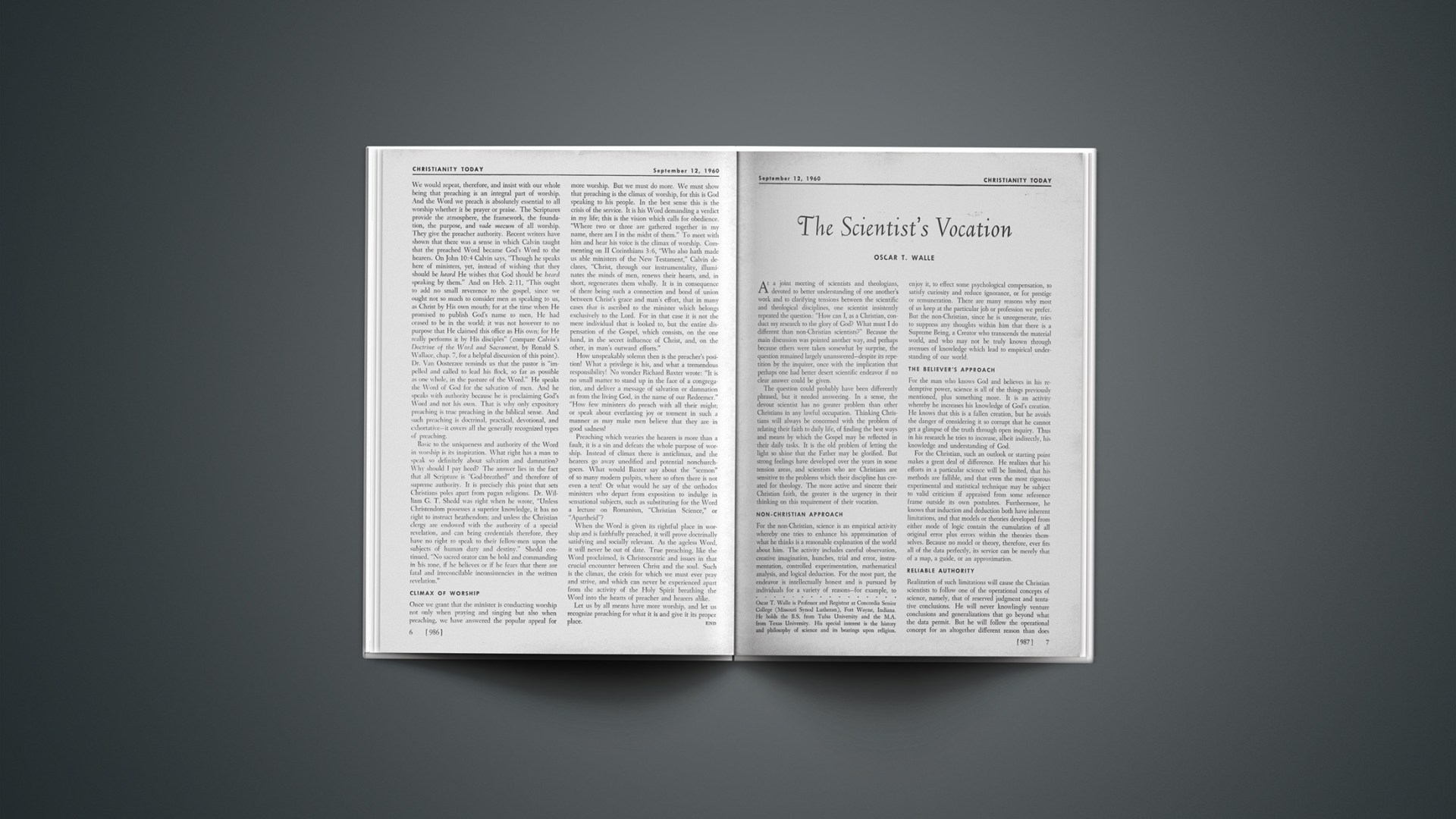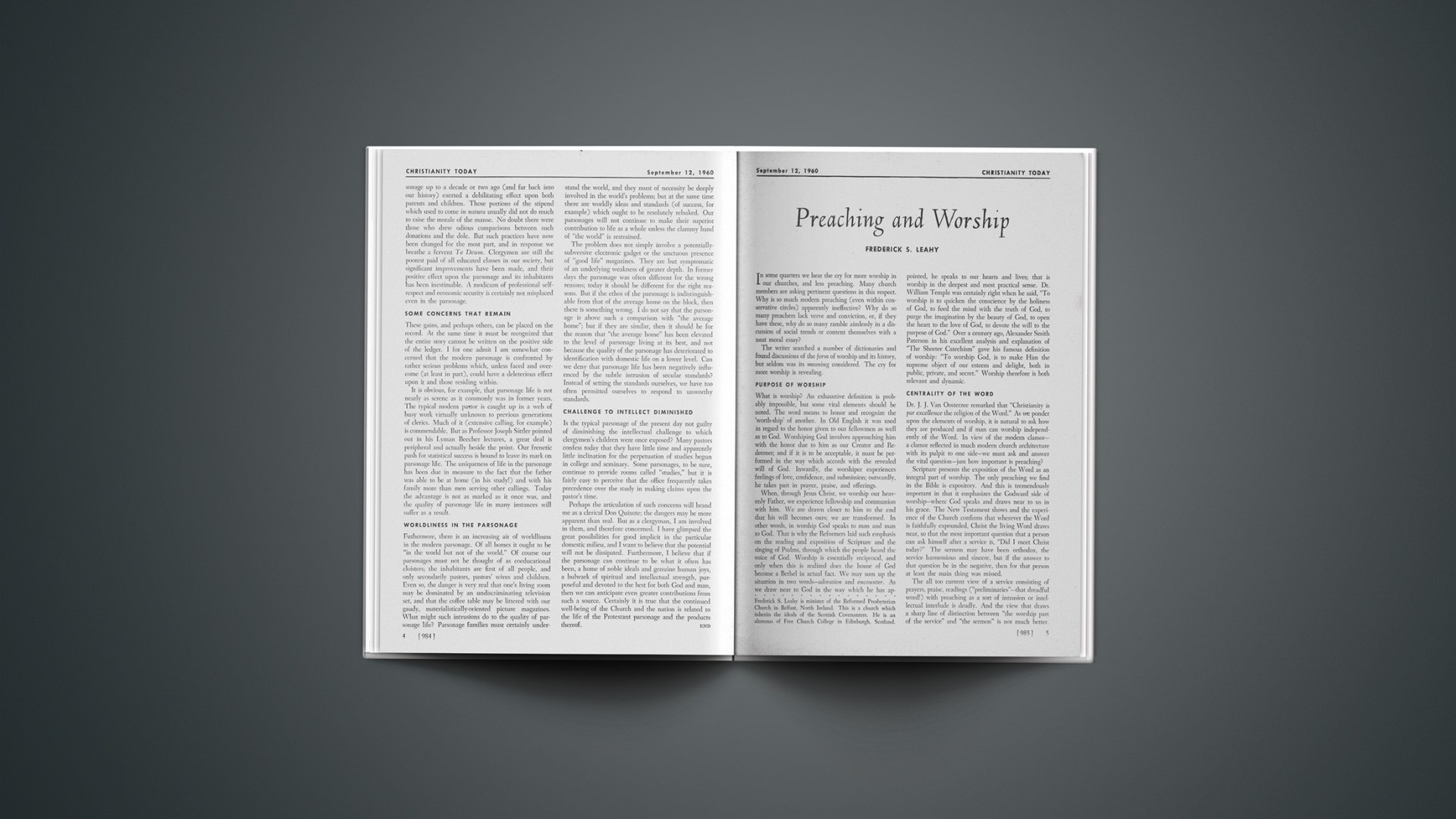Eschatology has been the center of theological attention for about a half century. It was at the turn of the century that theologians rediscovered the New Testament teaching about the Kingdom of God. Against the background of nineteenth century evolutionistic thought, it was realized that the New Testament said nothing about a Kingdom of God to be gradually realized by human effort, but that it said much about the Rule of God to be brought about by a radical and new act of God. Johannes Weiss and Albert Schweitzer laid the groundwork for the so-called “thoroughgoing eschatology,” and their influence is felt on the eschatological thinking of our own day. It was Fritz Buri and Martin Werner in Switzerland who later worked out the implications of the conclusions of Weiss and Schweitzer. Their basic idea was that the New Testament teachers (Jesus and the apostles) had reckoned on the direct and immediate coming of the Kingdom, an expectation doomed to be unrealized. The Church was disappointed at the delay of the Parousia as the Lord did not reappear and as it became apparent that the Church still had a long way ahead of her in history. So said Buri and Werner.
Such a view aroused the opposition in our day of men like Oscar Cullmann. Cullmann insisted that the “thoroughgoing eschatology” had wholly misinterpreted the New Testament hope. The radical eschatology missed the central place that New Testament faith gave to the completely decisive event of the Cross and the Resurrection of Jesus Christ, said Cullmann. The fact that the decisive events in saving history had already taken place kept the Church from suffering a severe crisis as a result of the delay in the reappearance of Christ.
The Lord’s coming was further off than the first believers thought, said Cullmann, but their faith realized that the great and radical event that changed the world had already happened at Calvary. What had yet to happen was only an outworking and an establishment of the salvation that had already been brought into the world.
Representatives of the school of “thoroughgoing eschatology” have argued against Cullmann that the expectation of the New Testament believers had been crushed by the Lord’s delay. They argue, indeed, that the delay of the Parousia had become an explicit matter dealt with in the New Testament itself, namely in II Peter. But we must note that in II Peter, it is the scoffers who intimidate the believers with the jibe, “Where is the promise of His coming?” Everything goes on the same as it has since the beginning of the world. Peter answers the scoffers by saying that they forget that everything has not gone on the same since the creation of the world. The flood has intervened. Scoffers in those days were saying that nothing could radically change things, that it was folly for Noah to expect judgment from heaven. Moreover, God delayed the flood which made it look for a while as though he had forgotten his promise. But God delayed only in order to grant time for men’s conversion; the delay was filled with God’s patience and long-suffering. The delay in his coming now does not make history meaningless; indeed, there is really no delay. God is fixing his own time wisely.
In the early days, the scoffers were not really concerned with the coming of Christ. They ridiculed the whole notion of God’s promise. Hence, when Peter says that a thousand years are like yesterday for God, he is not insisting that history has a long road ahead before the Lord would return. He only places before the Church the need for watchfulness: the day of the Lord shall come as thief in the night. Meantime, believers were to make their way through the world in a holy walk; filled with expectation, theirs it was to hasten on toward the coming of the Day of the Lord (2 Peter 3:11).
Representatives of the “thoroughgoing eschatology” obviously are not ignorant of II Peter. They are, however, not convinced of the above argument. They insist that Peter’s epistle is one that lets us see how the Church was confused by the delay in the Lord’s return. That is, II Peter is an early attempt to explain the delay to the Church. But such an interpretation does not have rapport with the contents. We read nothing to suggest that the Church as a whole was confused by the fact that the Lord had not yet returned. On the contrary, it was only some of the scoffers who made a point of it.
A controversy such as this, having gone on now for some 50 years, is not an academic point of theological debate. It touches on the vitals of believers’ lives. The Church still stands before the New Testament witness that the return of the Lord is near at hand. It is a witness that calls the Church of today to watchfulness. The surprising nature of the return (he comes as a thief) accents the need for watchfulness. We do not know the time of his coming.
Nonetheless we must remember that the history of man which marches on toward the end time is not a meaningless history. It is still a history full of God’s forbearance, for God is not willing that any should perish, but that all should come to repentance (2 Pet. 3:9). This means that we can count on nothing certain for tomorrow, but that we must view history in faith as we walk in holiness and love. Every setting of the date of his return has failed; yet, every now and then someone tries to set the date. The Gospel teaches us two things: we are not to fall asleep but are to be ever watchful, as a sentinel at his post; and we are not to despair at the course of history. For now is the gracious time in which the call to conversion sounds over history. How closely the controversies of theology are related to the life of the Church! The word of II Peter concerning the scoffers at the delay in the Lord’s return is still of existential significance for the Church of the twentieth century. Our century is full of tension and catastrophy, but it is full too of the forbearance and mercy of God.

